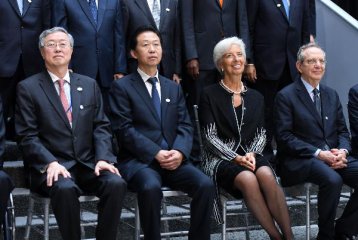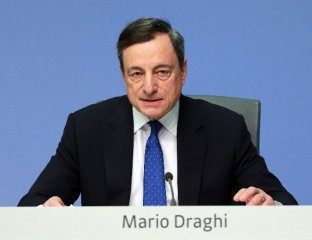
The European Central Bank (ECB) will maintain its monetary policy though the cyclical recovery of the euro area economy is becoming increasingly solid and downside risks have further diminished, its President Mario Draghi told Dutch lawmakers in a hearing on Wednesday.
"Maintaining the current very substantial degree of monetary accommodation is still needed for underlying inflation pressures to build up," said Draghi, reaffirming the bank intends to run its massive bond purchase program, which amounts currently to 60 billion euro per month "until the end of December 2017, or beyond, if necessary."
Dutch lawmakers have called on the Dutch government to seek an end to the ECB's monetary policy which they say seriously harms the country's pension system.
The visit of Draghi to the Dutch capital was an initiative of the Dutch Social Party (SP) in an effort to seek explanation about the ECB's stimulus program and the ultra-low interest rate policy.
The ECB's monetary policy includes a 2.3-trillion-euro asset purchase program and low rates aiming at cutting borrowing costs in an effort to revive growth and boost inflation in the Eurozone countries.
Dutch Central Bank President Klaas Knot recently stated that the measure of monetary easing by the ECB had reached the limit of its effectiveness.
A similar view has been suggested by German Bundesbank President Jens Weidmann. Defending his stance against these calls. the ECB chief said underlying price gains are still too weak to be sustainable.
"Underlying inflation pressures continue to remain subdued and have yet to show a convincing upward trend," he said.
He acknowledged that monetary policies came with side effects that are relating to the financial position of pension funds, but stressed that the benefits of these policies in supporting economic recovery and boosting inflation in the Eurozone were outweighing its side effects.
He also called on Eurozone governments to proceed with structural reforms. "In order to reap the full benefits of our monetary policy measures, other policy areas must contribute much more decisively to strengthening economic growth," he said.





















Latest comments